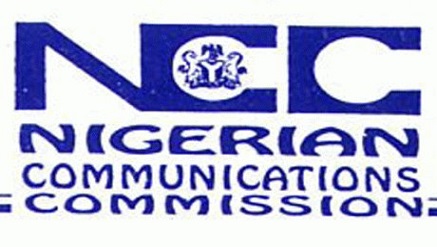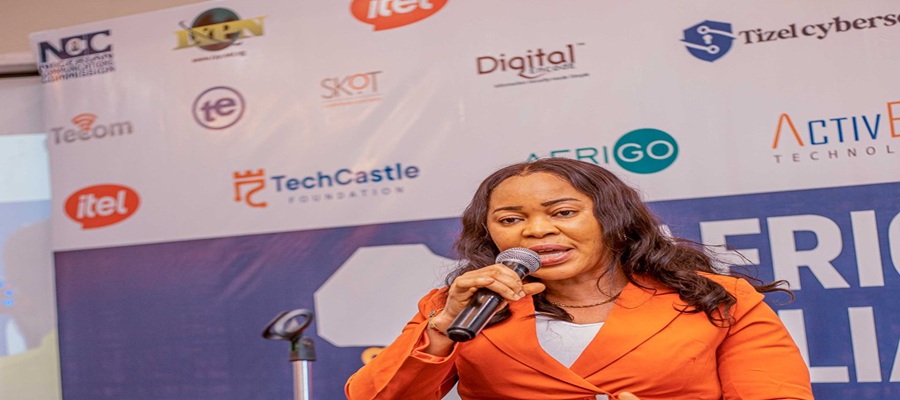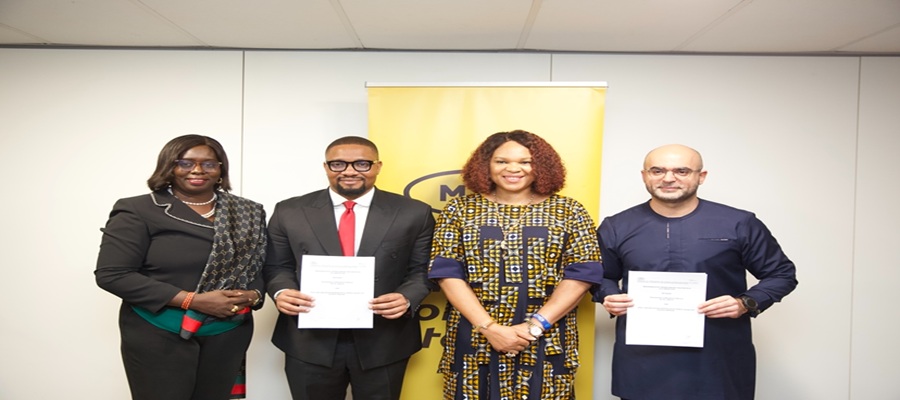Telecom
Buhari to Query Secret Sale of Over $1Bn Telecom Spectrums

Incoming government of Muhammadu Buhari is to focus his searchlight on the circumstances surrounding the secret sale of Digital Dividend Spectrum (DDS) licences valued at over $1 billion in the last few months by President Goodluck Jonathan, according to the Leadership Newspaper.
According to the Leadership Newspaper, the licensing did not pass through the normal bidding process, thereby preventing the NCC, the statutory body, from advertising and supervising a public auction.
Already, one of the terms of reference handed to the Alhaji Ahmed Joda-led transition committee last week was to provide a brief overview of the goings-on at the Nigerian Communications Commission (NCC), among other key government agencies, and provide quick-fixes within 30 days, 100 days and six months for the Buhari-led government.
According to an exclusive report published this week by online newspaper, Technology Times, ahead of the 2015 general elections, President Jonathan secretly sold two spectrums in the 800MH and 700MH to the chairman of Visafone, Mr Jim Ovia, and Otunba Mike Adenuga’s Globacom respectively without recourse to public auction.
Digital Dividend Spectrum allocation takes effect from 2015, in line with the dictate of the International Telecommunications Union (ITU) that television stations migrate from analogue to digital broadcasting from June 17, 2015.
DDS is released when television broadcasters switch from analog platforms to digital-only platforms; part of the electromagnetic spectrum that has been used for broadcasting will be freed up because digital TV needs fewer spectrums than analog television.
Already, the NCC is enmeshed in fresh crisis following the illegal and secret sale of a spectrum belonging to Nigerian Police to Open Skys Ltd as well as the secret sale of another spectrum to South African investors behind Smile Communications Ltd, one of the fourth generation network operators in the country.
According to the Leadership Newspaper, when contacted, the NCC director of public affairs, Mr Tony Ojobo, said he could not comment on the matter.
“I don’t have any information on it,” he said.
However, a top official of the Commission said the spectrum allocation followed a directive from the president.
“If the president orders you to allocate a certain spectrum, who are you not to obey?” he asked. “The directive came from the president and even the minister of communications technology cannot disobey it.
“Under normal circumstances, for NCC to sell a spectrum it should be by auction. But this is a directive from above.
Another source said the deal was done under the table on the expectation that the president would win his re-election.
He said NCC collaborated with the National Broadcasting Commission (NBC) on the belief that the proceeds of the sale of the spectrum licences would be deployed to fund the purchase of set-top boxes that would be used by Nigerians should the digital switchover take place on June 17, 2015.
The NBC has now shifted the switchover date to December 2017.
Calls to the spokesman of Globacom were not answered at the time of going to press.
Digital Dividend Spectrum is seen as a potential cash cow by telecom companies globally as it is used to deploy few base stations that provide voice, video and data communications at the highest broadband speeds.
A top telecom expert said the market had been bastardised, systematically distorted and disrupted whilst the investors are left guessing about the value of their investments.
“The president lacks the power under the law to make spectrum allocation,” he asserted. “The president can make policy, in the way provided for by the law, and ensure that those he appoints follow such public policy. Regulators are created around the world in order to protect players in the market, i.e. protect consumers of service, protect investors/operators and deliver government policy.
“The regulators are deliberately designed to be independent so that there is no political interference in their functions. The president or the minister is not to interfere with the functions of the regulator; in fact, section 25(2) of the NCC Act prohibits minister and, by extension the president, from interfering in NCC functions, and requires the minister and by extension president to ensure that NCC functions are independent of any political interference.”
According to the Leadership Newspaper, Dr Bashir Gwandu, a former executive commissioner at NCC, gave an interview in February 2012 highlighting what they had achieved at the ITU World Radio Communication Conference 2012 which led to the securing of additional 70MHz paired spectrum and 25MHz unpaired in the bands 700/850MHz, which span 700MHz, 800MHz and 900MHz Bands from the ITU .
It was the same spectrum whose allocation was secured by Dr Gwandu and his African team from the UN body that is in the spotlight again. In fact, it was the resistance of Gwandu to underselling, without competition, of part of the 800MHz and 450MHz that eventually led to his sack by President Jonathan.
Gwandu’s sack has since been declared illegal in the National Industrial Court ruling on Dr Bashir Gwandu v President, FRN (Jonathan) on January 21, 2014 where N100 million damages were awarded to Gwandu.
Of the three bands, the 800MHz, which had already been sold in controversial circumstances, was the one for which Gwandu was suppressed for attempting to blow the whistle.
He stood against the under-selling of a 10MHz slot in the 800MHz spectrum band to a South African company called Smile Communications Ltd at about €13 million only, when the exact equivalent spectrums were sold in Germany, Italy, France and UK for €1.153 billion, €992 million, €891 million and €631 million respectively, the UK earning slightly lower amount due to imposed strict coverage obligations.
In a related development, Belgium, a country of just 11 million people, raised €120million for each of the three slots of the 800MHz spectrum, generating a revenue of €360million.
And in a rather complicated mixture of 4G Spectrum slots, the Netherlands was only recently able to raise €3.8 billion from the 4G auction. So, each of the 10MHz paired spectrum slots in the 800MHz bands secured over a billion dollars for some countries in Europe.
The spectrum that was secured by Gwandu, totalling 70MHz duplex and 25MHz simplex, was 30MHz Duplex in the 700MHz band, 30MHz Duplex in the 800MHz band, 10MHz Duplex in the 900MHz band as well as 25MHz in the 700MHz simplex.
In particular, the specific bands are 703-733/758-788MHz, 791-721/832-862MHz, 880-890/925-935MHz, as well as 733-758MHz Simplex.
According to experts, each of the seven slots of 10MHz will fetch no less than $1billion in Germany for example.
Telecom
Africa Must Build Its Own Cybersecurity Intelligence, Says Tizel CEO At AfriTech 5.0

As Africa edges toward an estimated 750 million internet users by the end of 2025, the continent’s expanding digital footprint is increasingly matched by vulnerabilities that threaten its economic and national security.

Happiness Obioha, Managing Director and Chief Executive Officer of Tizel Cybersecurity
This concern took centre stage at the Africa Tech Alliance Forum (AfriTech 5.0), where Happiness Obioha, the Managing Director and Chief Executive Officer of Tizel Cybersecurity, delivered one of the event’s most compelling arguments for a new cybersecurity paradigm rooted in African intelligence rather than foreign technology.
Speaking on the theme “Beyond Firewalls: The Case for Homegrown Cybersecurity Intelligence in Africa,” Obioha maintained that Africa’s cybersecurity risks cannot be effectively mitigated with imported solutions that were never designed for the continent’s distinct digital realities.
She described Africa’s cyber landscape as one defined by unique threat actors, infrastructural limitations, cultural nuances, and business patterns that global security platforms often fail to understand.
According to her, relying solely on perimeter-based defenses such as firewalls is no longer adequate in a world where cyberattacks grow more adaptive, persistent, and sophisticated.
Obioha argued that Africa’s dependence on generic global tools has created a critical gap in the continent’s ability to detect, interpret, and respond to emerging threats, and explained that foreign cybersecurity systems frequently misread local attack patterns or fail to anticipate region-specific vulnerabilities.
As a result, many African organizations operate with a false sense of safety while facing increasingly complex threats ranging from ransomware and financial fraud to targeted breaches on government infrastructure.
The Tizel CEO emphasised that Africa’s long-term security lies in adopting intelligence-led approaches that draw from local insights, indigenous expertise, and continental research, and noted that such solutions allow faster and more precise threat detection because they are built with an understanding of local behaviour patterns and digital environments.
Beyond security improvements, she stressed that homegrown cybersecurity also strengthens national sovereignty, reduces capital flight, expands technical capacity, and creates jobs in one of the world’s fastest-growing sectors.
Obioha cited Tizel Cybersecurity as an example of what locally grounded innovation can achieve, explaining that the company’s model integrates contextual intelligence, real-time monitoring, rapid incident response, and strict adherence to regulatory frameworks.
According to her, Tizel’s work with banks, telecom operators, government agencies, and SMEs demonstrates the measurable impact of Africa-specific cybersecurity architecture.
Among the results she highlighted were the prevention of a major ransomware attack in the financial sector, a significant reduction in network downtime for a telecom operator, and the deployment of effective real-time monitoring systems for a government agency.
She reinforced that Tizel’s success is built on its deep understanding of the African digital ecosystem, a familiarity she described as indispensable for delivering cybersecurity that genuinely protects African institutions.
The region’s business culture, infrastructural diversity, and evolving digital habits, she said, can only be accurately interpreted by experts who operate within the same environment.
Obioha urged African enterprises and governments to take a more deliberate approach toward securing their digital future, and encouraged them to re-examine their cybersecurity posture, invest in indigenous intelligence-driven solutions, and build internal teams equipped to respond to emerging threats.
The survival and competitiveness of African businesses, she noted, will increasingly depend on their ability to align security strategies with the realities of the continent’s rapidly evolving digital economy.
“Africa’s digital future is promising,” she concluded, “but it must be secured with intelligence and innovation that come from within the continent.”
Telecom
MTN Partners with SMEDAN to Drive Digital Growth and Job Creation Nationwide

MTN Nigeria and the Small and Medium Enterprises Development Agency of Nigeria (SMEDAN) have signed a strategic partnership aimed at accelerating the growth, digital capacity, and sustainability of Nigeria’s 40 million Micro, Small and Medium Enterprises (MSMEs).

L-R: Julcit Onigbogi, Head of Legal, SMEDAN; Charles Odii, Director General, SMEDAN; Lynda Saint-Nwafor, Chief Enterprise Business Officer, MTN Nigeria and Ayham Moussa, Chief Operating Officer, MTN Nigeria, during the MTN, SMEDAN Seal Strategic Partnership Signing held at the MTN Plaza, Ikoyi on Thursday, November 27, 2025.
The signing ceremony was held at the MTN Plaza, Lagos, on Thursday, November 27, 2025.
MTN Nigeria’s Chief Operating Officer, Ayham Moussa, reiterated MTN’s commitment to supporting Nigeria’s economic development, stating that MSMEs are the lifeline of Nigeria’s economy.
He said: “SMEs are the backbone of the economy and the backbone of employment in Nigeria. We are delighted to power SMEDAN’s platform and provide tools that help MSMEs reach customers, obtain funding, and access wider markets.
“This collaboration serves both our business and social development objectives.”
Chief Enterprise Business Officer, Lynda Saint-Nwafor, MTN Nigeria described the MoU as a tool to “meet SMEs at the point of their needs,” noting that nano, micro, small, and medium businesses each require different resources to scale.
She stated: “Some SMEs need guidance, some need resources; others need opportunities or workforce support. This platform allows them to access whatever they need.
“We are committed to identifying opportunities across financial inclusion, digital inclusion, and capacity building that help SMEs to scale.”
Speaking at the event, the Director General of SMEDAN, Charles Odii, emphasised the significance of the collaboration, noting that the agency cannot meet its mandate without leveraging technology and private-sector expertise.
He said: “We have approximately 40 million MSMEs in Nigeria, and only about 400 SMEDAN staff. We cannot fulfil our mandate without technology, data, and strong partners.
“MTN already has the infrastructure and tools to support MSMEs from payments to identity, hosting, learning, and more. With this partnership, we are confident we can achieve in a short time what would have taken years.”
Odii highlighted that the SMEDAN-MTN collaboration would support businesses across their growth needs, guided by their four-point GROW model – Guidance, Resources, Opportunities, and Workforce Development.
He added that SMEDAN has already created over 100,000 jobs within its two-year administration and expects the partnership to significantly boost job creation, business expansion, and nationwide enterprise modernisation.
The partnership will feature joint initiatives focused on digital inclusion, financial access, capacity building, and providing verified information for MSMEs. With millions of small businesses depending on accurate guidance and easy-to-access support, MTN and SMEDAN say their shared platform will address gaps in communication, misinformation, and access to opportunities.
The event concluded with the formal signing of the Memorandum of Understanding (MoU), setting the stage for the immediate roll-out of tools, content, and resources that will support MSMEs nationwide.
Telecom
MTN Nigeria Launches Y’ello Data Gifting Campaign as Digital Connectivity Shapes Festive Celebrations

MTN Y’ello Tide is the gift that keeps giving, with MTN exciting Nigerians through a season filled with yellow gifting, digital rewards, and festive moments. This year, MTN is giving customers even more ways to stay connected and celebrate, and the Y’ello Data Gifting initiative stands as one of the many offerings under MTN Y’ello Tide.

MTN Nigeria
With Nigerians embracing more digital-led ways to connect and celebrate during the festive season, MTN Nigeria has introduced its Y’ello Data Gifting initiative as part of the broader MTN Y’ello Tide, designed to encourage customers to share data with loved ones while standing a chance to win prizes worth millions of naira. MTN Y’ello Tide continues to position digital connectivity as an exciting way to gift this season, reinforcing that MTN is giving Nigerians more value at a time they need it most.
The campaign runs from December 1 to 25, offering daily rewards such as Samsung smartphones and ₦20,000 shopping vouchers for the top 20 data gifters each day. As a core part of MTN Y’ello Tide, the data gifting experience helps customers enjoy more yellow moments through rewards, bonuses, and shared connections. Customers who participate also enjoy bonus data, with 1GB awarded to those gifting 10GB or more, and 500MB for gifts ranging between 5GB and 9.99GB. Participation is available through *321# or the myMTN NG app between 10am and 10pm daily.
Across Nigeria, digital behaviour continues to evolve. Internet consumption reached a record 973,455 terabytes in December 2024, marking a 36.5 percent year-on-year growth according to the Nigerian Communications Commission. MTN Y’ello Tide taps into this shift by offering exciting, value-driven digital gifting experiences that help people stay connected throughout the season.
While costs of food and non-alcoholic beverages have risen by over 92 percent in the last three years, and inflation stood at 34.60 percent in November 2024 with food inflation at 39.93 percent, Nigerians continue to prioritise meaningful and cost-efficient ways to stay connected. This shift has led many families to favour experiential or digital gifts, particularly as surveys show that 76 percent of Nigerians experienced income reductions in 2024, based on the PiggyVest Savings Report.
Festive spending has also adjusted to new realities. Items such as Christmas trees now range between ₦23,000 and ₦700,000, up from ₦17,000 to ₦450,000 last year. In this context, telco-led promotions like MTN Y’ello Tide’s Data Gifting campaign offer an alternative form of giving that aligns with today’s lifestyle needs. MTN is giving customers more ways to celebrate in yellow, creating exciting opportunities to share, connect, and enjoy festive rewards.
Nigeria remains a mobile-first market with 103 million internet users recorded at the start of 2024, representing 45.5 percent internet penetration according to DataReportal. Data now functions as a core utility supporting work, education, entertainment, and social connection across the country, making MTN Y’ello Tide’s digital gifting even more relevant this season.
As a Lagos civil servant noted earlier this month, the season remains a time for gratitude and connection, regardless of spending patterns. MTN Y’ello Tide strengthens this sentiment by making it easier for customers to stay connected and enjoy meaningful gifting in an exciting and accessible way.
The Y’ello Data Gifting campaign continues until December 25, with terms and conditions applying. As part of MTN Y’ello Tide, the initiative reinforces that MTN is giving Nigerians a festive season anchored on digital convenience, rewarding experiences, and yellow-themed celebration.
Dial *321# or download the myMTN NG app to start gifting data to your loved ones. Campaign runs until December 25, 2025. Terms and conditions apply.

 E-Business2 days ago
E-Business2 days agoJumia’s Data Shows Nigerians Turning to Digital Retail to Navigate Inflation Pressures

 E-Business2 days ago
E-Business2 days agoNigeria Records Highest Weekly Cyberattacks in Africa — Report

 News2 days ago
News2 days agoSEC to Enhance Investor Engagement with USSD Code, ISS Audio

 Telecom2 days ago
Telecom2 days agoAirtel Nigeria Wins Best in Technology for Development @ 2025 SERAS Awards

 Telecom2 days ago
Telecom2 days agoNigeria-South Africa Chamber Celebrates Silver Jubilee of Bilateral Trade Ties

 News2 days ago
News2 days agoFirm Detected Half a Million Malicious Files Daily in 2025

 Broadcasting1 day ago
Broadcasting1 day agoIt is Official, DStv Confirms Termination of 16 Major Channels

 News2 days ago
News2 days agoNEC Endorses N100Bn Overhaul of Police and Security Training Facilities



























